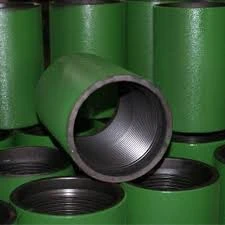- Afrikaans
- Albanian
- Amharic
- Arabic
- Armenian
- Azerbaijani
- Basque
- Belarusian
- Bengali
- Bosnian
- Bulgarian
- Catalan
- Cebuano
- Corsican
- Croatian
- Czech
- Danish
- Dutch
- English
- Esperanto
- Estonian
- Finnish
- French
- Frisian
- Galician
- Georgian
- German
- Greek
- Gujarati
- Haitian Creole
- hausa
- hawaiian
- Hebrew
- Hindi
- Miao
- Hungarian
- Icelandic
- igbo
- Indonesian
- irish
- Italian
- Japanese
- Javanese
- Kannada
- kazakh
- Khmer
- Rwandese
- Korean
- Kurdish
- Kyrgyz
- Lao
- Latin
- Latvian
- Lithuanian
- Luxembourgish
- Macedonian
- Malgashi
- Malay
- Malayalam
- Maltese
- Maori
- Marathi
- Mongolian
- Myanmar
- Nepali
- Norwegian
- Norwegian
- Occitan
- Pashto
- Persian
- Polish
- Portuguese
- Punjabi
- Romanian
- Russian
- Samoan
- Scottish Gaelic
- Serbian
- Sesotho
- Shona
- Sindhi
- Sinhala
- Slovak
- Slovenian
- Somali
- Spanish
- Sundanese
- Swahili
- Swedish
- Tagalog
- Tajik
- Tamil
- Tatar
- Telugu
- Thai
- Turkish
- Turkmen
- Ukrainian
- Urdu
- Uighur
- Uzbek
- Vietnamese
- Welsh
- Bantu
- Yiddish
- Yoruba
- Zulu
Comparing Bull Plug and Hex Plug for Optimal Performance and Application Use
Bull Plug vs. Hex Plug Understanding the Differences and Applications
In various industries, the choice of plugs and fittings is crucial for ensuring the efficiency, safety, and reliability of systems. Two common types of plugs are the bull plug and the hex plug. While they may serve similar functions in sealing and closing off openings, they have distinct characteristics and applications that set them apart. This article will explore the differences between bull plugs and hex plugs, detailing their specific features and the contexts in which they are commonly used.
Design and Structure
The primary difference between bull plugs and hex plugs lies in their design and overall structure. A bull plug, often characterized by its rounded or convex shape, is typically used in applications where a smooth and streamlined closure is necessary. The rounded design allows for easier installation and removal, particularly in tight spaces or areas with limited access. Bull plugs often feature a tapered end, which aids in achieving a snug fit when inserted into a fitting.
In contrast, hex plugs are designed with a hexagonal shape, allowing them to be easily tightened or loosened with a wrench or socket. The six-sided design provides excellent grip and torque, making hex plugs particularly useful in high-pressure applications where a secure seal is essential. They are more suited for industrial environments where equipment may require frequent adjustments or maintenance.
Material Composition
Both types of plugs can be made from a variety of materials, including metal, plastic, and rubber, depending on the specific application requirements. Bull plugs are often constructed from softer materials like rubber or flexible plastics, which allow for better sealing and adaptability to irregular surfaces. This makes them ideal for use in plumbing systems, where preventing leaks is critical.
bull plug vs hex plug

Hex plugs, on the other hand, are frequently made from metals such as stainless steel, brass, or aluminum, which offer greater strength and durability. Their robust construction makes them suitable for high-pressure systems in industries such as oil and gas, automotive, and various manufacturing processes. The choice of material not only affects the plug's performance but also its compatibility with different substances, such as corrosive chemicals or high temperatures.
Applications in Industry
The applications of bull plugs and hex plugs vary widely across industries. Bull plugs are commonly used in plumbing systems, drainage systems, and as temporary closures for vents or openings. Their user-friendly design makes them ideal for residential and commercial plumbing, where ease of installation and removal is a priority.
Hex plugs find their niche in more demanding environments, particularly in mechanical and hydraulic systems. They are often used to close off unused ports, seal threaded openings, and protect equipment from contamination. In automotive applications, hex plugs are used in engines and transmissions to prevent fluid leaks, and are essential for maintaining the integrity of hydraulic systems.
Choosing the Right Plug
When selecting between a bull plug and a hex plug, it’s important to consider the specific requirements of the application. Factors such as pressure rating, temperature conditions, and the medium being sealed all play a critical role in determining the appropriate choice. Additionally, ease of installation and the frequency at which maintenance will be performed can influence the decision.
In conclusion, both bull plugs and hex plugs have their unique advantages and are designed to meet specific needs across various sectors. Understanding the differences between them can help professionals make informed decisions that enhance the performance and reliability of their systems. Whether ensuring a leak-free plumbing installation with a bull plug or securing a high-pressure hydraulic connection with a hex plug, choosing the right tool for the job is paramount for operational success.
-
Tubing Pup Joints: Essential Components for Oil and Gas OperationsNewsJul.10,2025
-
Pup Joints: Essential Components for Reliable Drilling OperationsNewsJul.10,2025
-
Pipe Couplings: Connecting Your World EfficientlyNewsJul.10,2025
-
Mastering Oilfield Operations with Quality Tubing and CasingNewsJul.10,2025
-
High-Quality Casing Couplings for Every NeedNewsJul.10,2025
-
Boost Your Drilling Efficiency with Premium Crossover Tools & Seating NipplesNewsJul.10,2025







